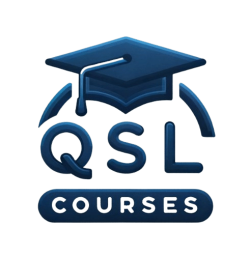Start Here
Regulations and Policies
The Regulations and Policies module is a cornerstone of the Basic Qualification curriculum, providing learners with a detailed understanding of the legal and operational framework for amateur radio in Canada. This module covers all aspects of regulatory compliance, from obtaining and maintaining your amateur radio licence to understanding international privileges and ITU regulations. It explains the rules for station identification, operational standards, and the restrictions on content and equipment use, ensuring learners understand the boundaries and responsibilities of their operating privileges.
Key topics include licensing requirements, eligibility criteria, terms and conditions of operation, and procedures for managing interference and emergency communications. Learners also explore the technical standards for frequency allocations, power restrictions, and RF safety, as well as the process for resolving disputes and managing antenna structure approvals. Additionally, the course delves into the unique aspects of international operation, such as reciprocal privileges and coordination with foreign operators, offering a global perspective on amateur radio practice.
Using the QSL (Question Specific Learning) methodology, this course integrates practical examples with theoretical concepts to enhance understanding and retention. Each section includes scenario-based questions and real-world applications to ensure learners are prepared not only to pass the Basic Qualification exam but also to operate their amateur radio stations confidently and in full compliance with all relevant regulations. This module is essential for building a strong foundation in amateur radio operation, fostering both technical proficiency and regulatory awareness.
-
1-1 Radio Licences, Applicability, Eligibility Of Licence Holder
-
1-2 Licence Fee, Term, Posting Requirements, Change Of Address
-
1-3 Licence Suspension Or Revocation, Powers Of Radio Inspectors, Offences And Punishments
-
1-4 Operator Certificates, Applicability, Eligibility, Equivalents, Reciprocal Recognition
-
1-5 Operation, Repair And Maintenance Of Radio Apparatus On Behalf Of Other Persons
-
1-6 Operation Of Radio Apparatus, Terms Of Licence, Applicable Standards, Exempt Apparatus
-
1-7 Content Restrictions - Non-Superfluous, Profanity, Secret Code, Music, Non-Commercial
-
1-8 Installation And Operating Restrictions - Number Of Stations, Repeaters, Home-Built, Club Stations
-
1-9 Participation In Communications By Visitors, Use Of Station By Others
-
1-10 Interference, Determination, Protection From Interference
-
1-11 Emergency Communications (Real Or Simulated), Communication With Non-Amateur Stations
-
1-12 Non-Remuneration, Privacy Of Communications
-
1-13 Station Identification, Call Signs, Prefixes
-
1-14 Foreign Amateur Operation In Canada, Banned Countries, Third-Party Messages
-
1-15 Frequency Bands And Qualification Requirements
-
1-16 Maximum Bandwidth By Frequency Bands
-
1-17 Restrictions On Capacity And Power Output By Qualifications
-
1-18 Unmodulated Carriers, Retransmission
-
1-19 Amplitude Modulation, Frequency Stability, Measurements
-
1-20 International Telecommunication Union (Itu) Radio Regulations, Applicability
-
1-21 Operation Outside Canada, Itu Regions, Reciprocal Privileges, International Licences
-
1-22 Examinations - Delegated Examinations, Disabled Accommodation
-
1-23 Antenna Structure Approval, Neighbour And Land-Use Authority Consultation
-
1-24 Radio Frequency Electromagnetic Field Limits
-
1-25 Criteria For Resolution Of Radio Frequency Interference Complaints
Regulations and Policies
This module provided an in-depth exploration of amateur radio regulations and policies. Key topics included:
- Licensing Requirements
You learned about radio licences, eligibility criteria, fees, terms, and the requirements for posting and maintaining your licence information. - Operational Standards and Restrictions
Covered the rules for operating, repairing, and maintaining radio apparatus, including restrictions on content, number of stations, and the use of secret codes, music, and commercial content. - Interference and Emergency Communications
Studied the procedures for handling interference complaints, protecting against interference, and engaging in emergency communications with non-amateur stations. - Station Identification and Call Signs
Gained an understanding of station identification requirements, including call sign prefixes, suffixes, and station identification practices. - International Regulations and Privileges
Explored reciprocal privileges, ITU regions, international licences, and rules for foreign amateur operations in Canada. - Frequency and Power Restrictions
Learned about frequency bands, maximum bandwidth, and power output limits based on operator qualifications. - Antenna and Safety Regulations
Covered the approval process for antenna structures, consultations with neighbors and land-use authorities, and RF electromagnetic field limits. - Examinations and Accommodations
Reviewed the process for examinations, delegated testing, and accommodations for disabled operators.
Through the QSL (Question Specific Learning) methodology, you reinforced these concepts through scenario-based examples, preparing you to comply with regulatory standards and excel in the Basic Qualification exam.
